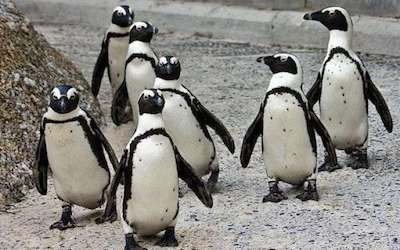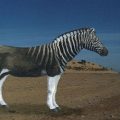PTE考生目前最大的问题之一就是练习题缺乏。除了有限的基本官方书(PLUS,Testbuilder, OG)之外就没有题了。很多英语基础不是很扎实的同学很难找到练习材料。悉尼文波雅思PTE培训学校专门为澳洲,尤其是悉尼、墨尔本的PTE考生准备了适合PTE听力阅读练习的科学60秒。各位PTE同学可以练习PTE听力中的summarise spoken text和PTE口语中的retell lecture,PTE听力口语-科学60秒-Frosty Moss练习记笔记技巧和复述。废话少说,下面开始:
听力内容:
60秒科学节目(SSS)是科学美国人网站的一套广播栏目,英文名称:Scientific American – 60 Second Science,节目内容以科学报道为主,节目仅一分钟的时间,主要对当今的科学技术新发展作以简明、通俗的介绍,对于科学的发展如何影响人们的生活环境、健康状况及科学技术,提供了大量简明易懂的阐释。
This is Scientific American — 60-Second Science. I’mJason Goldman.
Over millions of years, penguins have evolved a keen sense of where to find food. Once they’re old enough, they set off from the shores on which they hatched for the first time and swim long distances in search of tasty fish like anchovies and sardines. But they don’t search directly for the fish themselves.
For example, when young endangered African penguins head out to sea, they look for areas with low surface temperatures and high chlorophyll. Because those conditions signal the presence of phytoplankton. And lots of phytoplankton means lots of zooplankton, which in turn means lots of their favorite fish. Well, that’s what it used to mean.
Climate change plus overfishing have made the penguin feeding grounds a mirage. The habitat is indeed plankton-rich—but now it’s fish-poor. Researchers call this kind of scenario an”ecological trap.”
“It’s a situation where you have a signal that previously pointed an animal towards good quality habitat. That habitat’s been changed, usually by rapidly induced human pressures, usually anthropogenic change—and the signal stays, but the underlying quality in the environment deteriorates.”
University of Exeter zoologist Richard Sherley. He and his team used satellite imaging to track the dispersal of 54 recently fledged African penguins from eight sites along southern Africa. Historically, the birds benefitted from tons of fish off the coasts of Angola, Namibia and western South Africa, but now they’re going hungry.
“I was really hoping we’d see them going east, and finding areas where the fish had shifted to…so I was quite surprised to be wrong, and unfortunately quite sad to be wrong in this case. It ends up being quite a sad story for the penguins.”
The researchers calculate that by falling into this ecological trap, African penguin populations on South Africa’s Western Cape have declined by around 80 percent. The findings are in the journal Current Biology.
Some research groups are exploring the idea of translocating chicks to a place where they can’t get trapped, like the Eastern Cape. But Sherley thinks that a longer-term solution means implementing regulations to create more sustainable fisheries, something that he says has public support.
And as for the penguins?
“There’s not necessarily yet in an extinction vortex. So it’s not hopeless yet.”
But time flies. Unlike penguins.
Thanks for listening for Scientific American — 60-Second Science Science. I’m Jason Goldman.
墨尔本悉尼文波PTE原创首发
更多精彩请持续关注微信wenbo_tv3。





